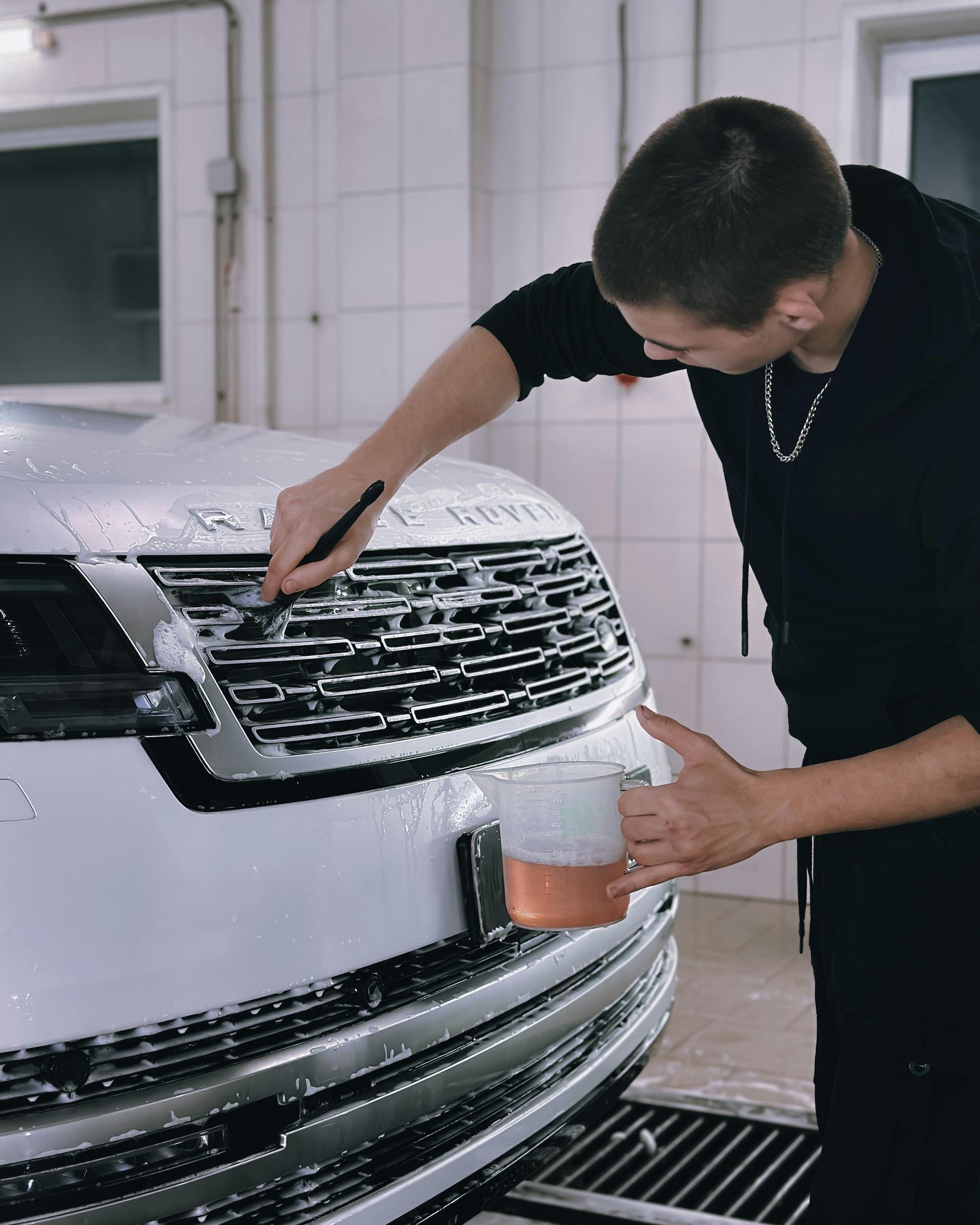The Essential Guide to Collision Repair Shop Certifications
What Certifications Say About a Collision Repair Shop

After an accident, you want repairs by a collision repair technician you can trust, not shortcuts or guesswork. That’s where certifications come in. They separate the true professionals from the rest.
When a collision repair shop is certified, it means their technicians are trained, their equipment meets industry standards, and their work adheres to strict guidelines set by the industry or manufacturers, reflecting their industry certifications. It’s not just a badge—it’s your assurance that the job will be done right.
At APC Auto Body, we’ve earned the industry’s most respected certifications and trained many graduates because we believe your safety, your vehicle, and your peace of mind are worth it, no matter where you’re coming from across the South Coast.
Why Collision Repair Shop Certifications Matter
Today’s vehicles are built with complex materials, electronics, and safety systems that require precise repair methods. After a collision, it’s not just about making the car look good again—it’s about restoring its structure, safety, and performance.
Certifications indicate that a shop’s employees, including technicians, are trained to follow up-to-date repair procedures using the proper tools and equipment. This reduces the risk of missed damage, improper repairs, or future issues.
Shops with industry-recognized certifications are more likely to:
- Follow the manufacturer's repair guidelines
- Use approved parts and materials
- Protect your vehicle’s warranty and resale value
Certifications help ensure that collision repairs are done correctly, not just quickly or cheaply.
Key Collision Repair Certifications to Know
Not all certifications carry the same weight. Some reflect a shop’s commitment to training and safety, while others demonstrate manufacturer-specific expertise. Here are the most recognized certifications in the industry and what they mean for you.
I-CAR Gold Class
The I-CAR Gold Class designation, which emphasizes hands-on training, is one of the most respected in the collision repair industry. It indicates that a shop’s technicians receive ongoing training in the latest repair techniques, tools, and materials.
Gold Class status isn’t permanent—it requires continuous education to keep up with changes in vehicle design and technology. Fewer than 22% of repair shops in the U.S. meet this standard, which translates to less than 10,000.
OEM Certification
OEM certification stands for Original Equipment Manufacturer. When a shop is OEM certified, it means that the vehicle manufacturer (such as Ford, Honda, or BMW) has reviewed and approved the shop to perform repairs that adhere to the factory's specifications.
These certifications typically require:
- Use of manufacturer-recommended repair procedures
- Access to OEM tools and equipment
- Installation of factory-approved parts
OEM certification helps ensure that the repair process aligns with the standards originally used to build the vehicle.
ASE Certification
ASE (Automotive Service Excellence) certification applies to individual technicians, not the shop itself. It’s a rigorous testing and re-certification process that covers a wide range of specialties, including collision repair and refinishing.
ASE-certified technicians undergo regular testing to confirm their knowledge and ensure their skills remain current.
Professional Affiliations That Reinforce Credibility
While certifications indicate that a shop meets technical standards and participates in a program, professional memberships demonstrate a commitment to industry ethics, community values, and ongoing improvement. These affiliations don’t guarantee repair quality, but they do signal a shop’s effort to stay engaged and accountable.
Common industry-related memberships include:
- Better Business Bureau (BBB): Accreditation reflects a focus on transparency, customer service, and dispute resolution.
- National Federation of Independent Business (NFIB): Supports small, locally owned businesses and advocates for ethical practices.
- Alliance of Automotive Service Providers (AASP): A trade organization that promotes high standards and professional development in the collision repair industry.
Membership in these organizations suggests that a shop takes its role seriously, not just in performing repairs, but in operating as a trustworthy business.
What Certified Repairs Mean for You
Choosing a certified collision repair shop isn’t just about credentials—it’s about what those credentials mean for your vehicle and your peace of mind.
When a shop meets industry and manufacturer standards, you can expect:
- Technicians trained in proper repair procedures
- Access to the right tools, parts, and OEM guidelines
- Repairs that restore safety systems and structural integrity
- Work that helps protect your warranty and resale value
- Staff familiar with insurance processes and documentation
Ultimately, certifications provide you with more confidence in the complete quality, safety, and reliability of the repairs being performed.
How APC Auto Body Approaches Certification
At APC Auto Body, certifications aren’t just a formality—they’re part of how we stay current with changes in vehicle design, repair materials, and safety systems.
Our team invests in ongoing training, uses manufacturer-approved tools, and follows repair procedures backed by OEM guidelines. Certifications like I-CAR Gold Class and OEM recognition reflect that commitment to doing the work correctly and safely.
As a family-run business serving communities across the South Coast, we believe in building trust through consistency, transparency, and high standards—not just fixing cars.
Schedule Certified Collision Repair You Can Trust
If your damaged vehicles need bodywork, don’t let your insurance company steer you toward the quickest or cheapest option. Look for a repair shop with verified credentials and a commitment to restoring vehicles with automotive service excellence.
APC Auto Body is an I-CAR Gold Class, OEM-certified facility, staffed with ASE-certified technicians. We’re also active members of trusted organizations like the BBB, NFIB, and AASP.
Have questions about our certifications or want to schedule an estimate? Contact us at (508) 998-9820 or visit our website to get started.
